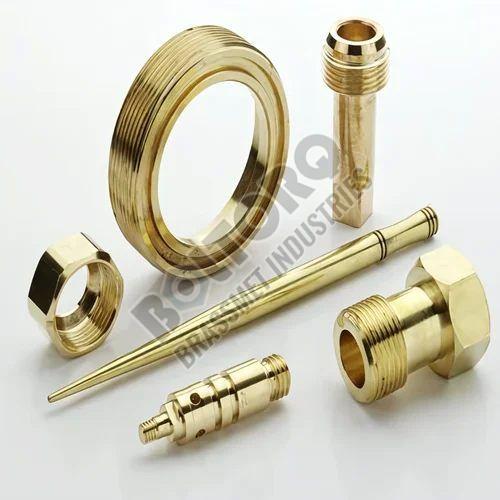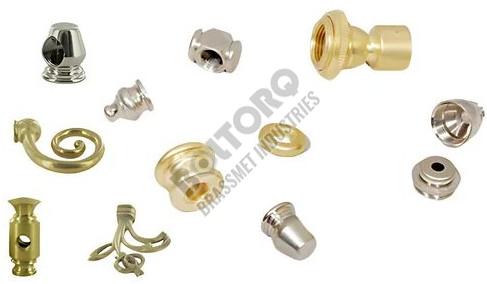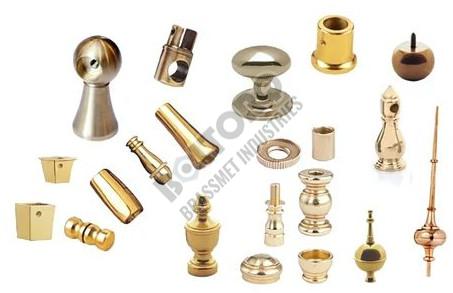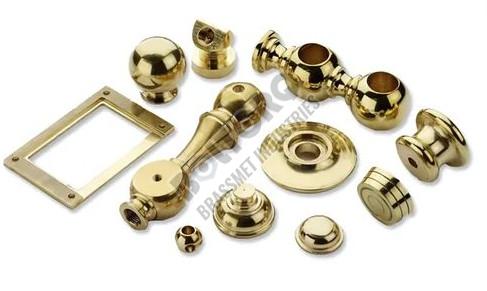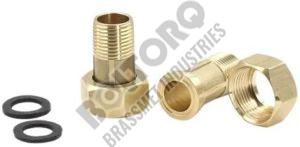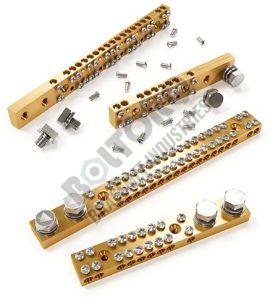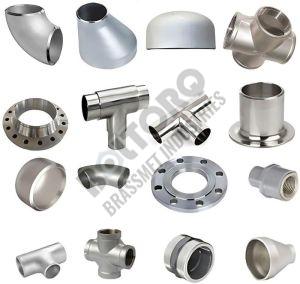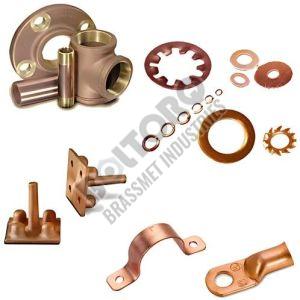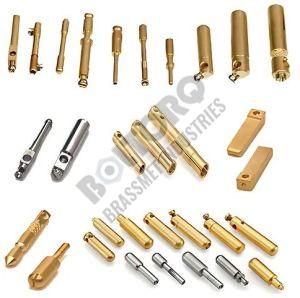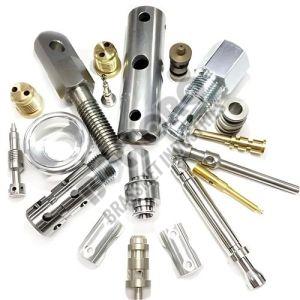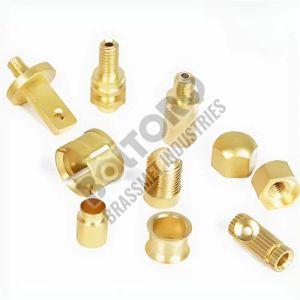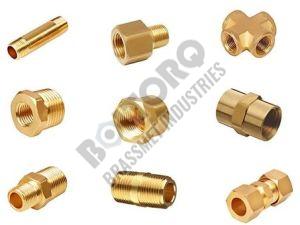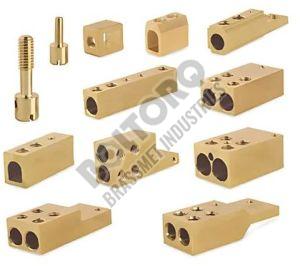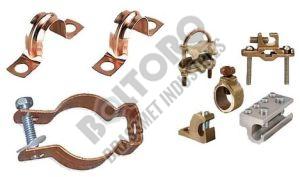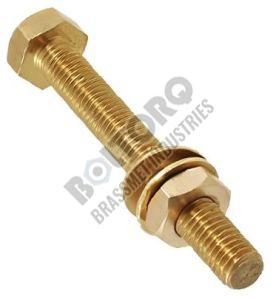View Mobile Number
- GST NO. : 24BKDPR7437Q2ZE
670.00 / 1 Piece
| Business Type | Manufacturer, Exporter, Supplier |
| Size | Standard |
| Finishing | Polished |
| Application | Industrial |
| Click to view more | |
Preferred Buyer From
| Location | Worldwide |
Product Details
Color
Silver, Golden
Material
Brass
Country of Origin
India
Brass Turned Components: Precision Engineering for Diverse Applications
Uses:
- Automotive: Engine parts, fuel system components, and fittings for their reliability and resistance to wear.
- Electronics: Connectors, terminals, and housings for their electrical conductivity and durability.
- Plumbing: Faucets, valves, and fittings for their corrosion resistance and longevity.
- Aerospace: Instrumentation components, hydraulic fittings, and fasteners for their strength and reliability.
- Medical: Surgical instruments, implants, and diagnostic equipment components for their biocompatibility and precision.
- Telecommunications: Connectors, adapters, and antennas for their conductivity and durability.
- Renewable Energy: Solar panel components, wind turbine parts, and battery terminals for their resistance to environmental factors.
- General Engineering: Various machinery components, fasteners, and fittings for their reliability and ease of machining.
Details:
- Material Composition: Brass turned components are crafted from high-quality brass alloys, typically containing copper and zinc, offering a balance of strength, machinability, and corrosion resistance.
- Precision Machining: Utilizes CNC (Computer Numerical Control) turning machines to achieve high levels of precision and accuracy in shaping brass rods into intricate components.
- Tolerance Control: Brass turned components are manufactured to exacting tolerances, ensuring a perfect fit and compatibility with mating parts.
- Surface Finish: Finished with precision polishing, plating, or coating processes to enhance aesthetics, durability, and corrosion resistance.
- Customization Options: Brass turned components can be customized in terms of dimensions, thread sizes, surface finishes, and branding, meeting specific application requirements.
- Quality Assurance: Rigorous quality control measures are employed throughout the manufacturing process to ensure that each component meets industry standards for performance, reliability, and dimensional accuracy.
Benefits:
- High Machinability: Brass alloys are easy to machine, allowing for intricate designs, complex geometries, and tight tolerances to be achieved with precision.
- Corrosion Resistance: Brass turned components exhibit excellent corrosion resistance, making them suitable for use in both indoor and outdoor applications, even in harsh environments.
- Aesthetic Appeal: The natural gold-like appearance of brass, combined with various finishing options such as polishing or plating, enhances the visual appeal of turned components.
- Electrical Conductivity: Brass alloys offer good electrical conductivity, making them ideal for applications requiring reliable electrical connections or grounding.
- Biocompatibility: Brass turned components are suitable for use in medical and healthcare applications due to their biocompatibility and resistance to bodily fluids and sterilization methods.
- Longevity: Brass components are known for their durability and longevity, offering reliable performance over extended periods with minimal maintenance requirements.
- Cost-Effectiveness: Brass turned components provide a cost-effective solution for manufacturing precision parts, offering a balance of performance, durability, and affordability.
- Versatility: With a wide range of applications across industries, brass turned components offer versatility and adaptability to meet diverse customer needs and specifications.
Looking for "Brass Turned Components" ?
Kilogram
Explore More Products


